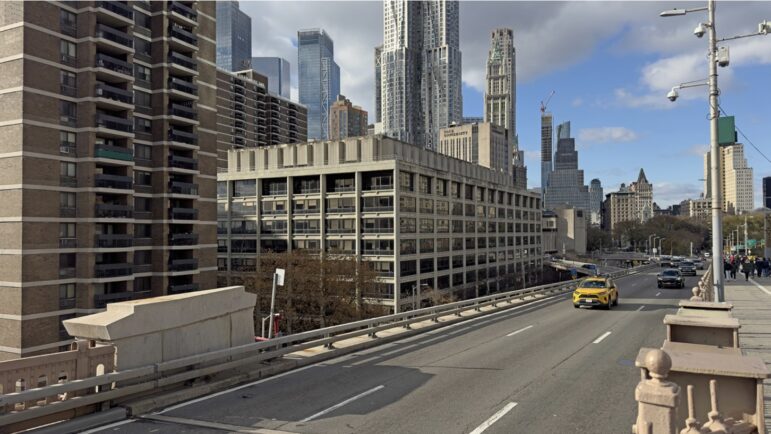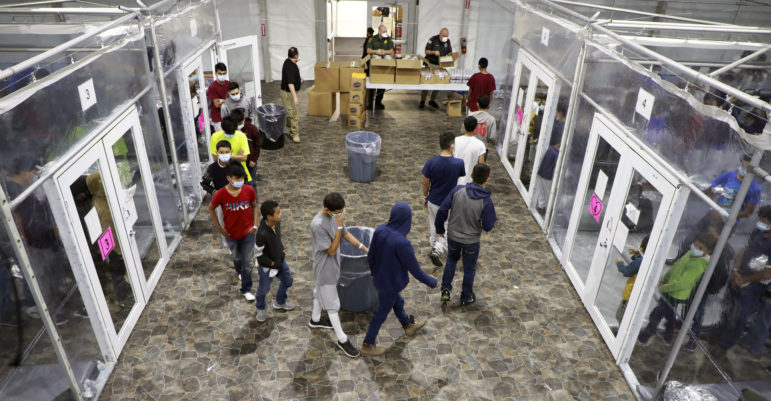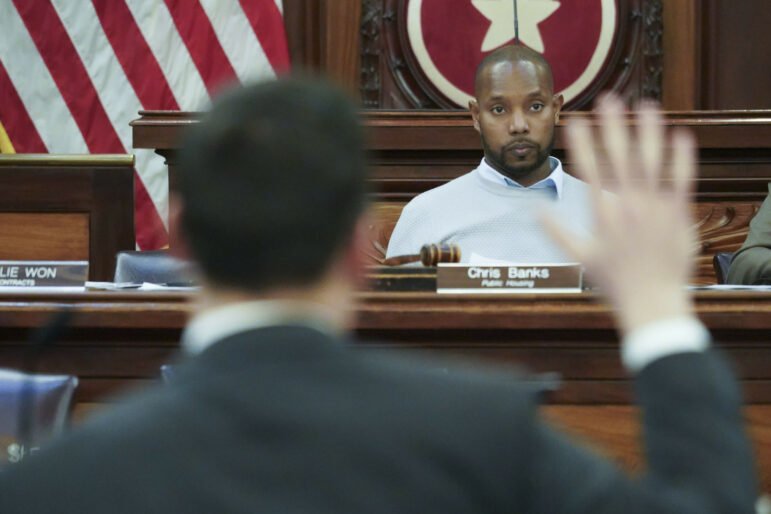
Photo by: Lizzie Ford-Madrid
Casimiro Steven Torres, who was arrested some 67 times during his years as an addict, seen with one of the clients he now helps as a counselor. He’s been clean since 2005.
Behind the tough-on-crime speeches, the statistical spins and the overblown media coverage, it is possible that New York City’s war on drugs has long been about chasing sad-sack addicts like Casimiro Steven Torres once was.
By his own count, Torres piled up 67 arrests for a variety of petty and not-so-petty crimes. Out of those six dozen arrests, only three resulted in state prison sentences, the longest of which was three years for a robbery committed when he was 20. But the more typical punishment was anywhere from a night in city jail to 45 days on Rikers, after which he went back out on the streets, literally. Every single crime he committed, he says, was to pay for one type of drug or another.
Torres grew up poor with an alcoholic mother, abandoned by his father. During periods when his mother was hospitalized for her habit, her nine children were sent to state-run facilities where, Torres claims, he suffered mental, physical and sexual abuse. He turned to drugs (pot, LSD and cocaine) before puberty and at 15, after a suicide attempt and an escape from a psychiatric ward, he was arrested for the first time, for possession of marijuana.
Torres, going by the nickname “Casey,” yo-yoed between the streets and group homes (where, he claims, the abuse continued) for a couple of years, until the state couldn’t legally hold him anymore. His mother died when he was 17, and a day after her funeral, he was arrested for a robbery that landed him in a juvenile detention center. After he was released, he says, “I just became a street person.”Hanging out mostly in Times Square and Hell’s Kitchen, sleeping on top of the lockers at Penn Station and in subway tunnels he started smoking crack and stealing and robbing to pay for it. “I never shot anybody or stabbed anybody or anything like that,” he says. “Not to say I didn’t get violent once in a while.”
In 1989, when he was 20, he landed in state prison for the first time, after committing a robbery in order to buy crack. “The minute I was released, the first time I got off the bus at Times Square, I immediately got high,” Torres says. “I had no intention of doing anything else.”As in all his subsequent jail or prison terms, he says, he received no substance abuse treatment while he was locked up.
Not only did he never receive drug treatment while incarcerated but “prison is where I picked up a heroin addiction,” Torres says, adding that he later became hooked on Vicodin while locked up too. “Drugs are plentiful in prison.”
On July 27, 2005, Torres was arrested for the last time. He does not recall why. After doing 45 days on Rikers Island, he checked out the Fortune Society, a nonprofit inmate services agency that another former inmate recommended, and he began substance abuse treatment.
Feeling the need to “reinvent” himself, he started calling himself “Caz.” Whereas Casey couldn’t go more than a few weeks without using, Caz has been sober for nearly four years, has a wife and daughter, and works as a drug and HIV-AIDS counselor. Now 43, he is not sure why he has been able to stay away from drugs this time, except to say, “All of a sudden I just wanted to live more than I wanted to die.”








